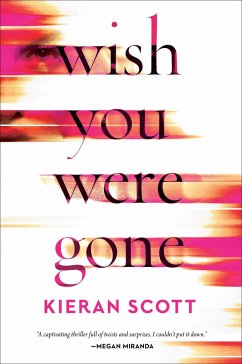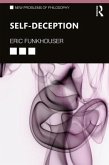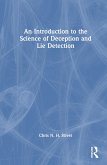Lies, Lying and Liars: A Psychological Analysis delves into the psychology of lies, exploring the processes of lying and its far-reaching consequences.
The author's unique approach considers the ways in which lying sculpts our realities when used by public figures such as politicians, as well as how lying is woven into our everyday life. This book dissects lies in natural social contexts, from the innocent childhood fibs to the more nefarious fabrications of con artists, cheats, and adulterers. Drawing from a rich tapestry of psychology and sociobiology, as well as research and literature from philosophy and the social sciences, this book discusses the role of lying and liars in day-to-day life. It offers profound insights into the strategies of deceit, the presence or absence of remorse, emotion and rationalisations, pathological liars, the development of lying, its connection to narcissism, the functional utility of lies, and lie detection. Lies, the book argues, area part of the social structures inherent in everyday social life, and there is a need to explore their psychological significance in a range of natural, everyday contexts.
Written in Beattie's unique and engaging style by using elements of personal narrative and self-reflection, this is a fascinating read for students and scholars of psychology, sociology, and politics, and other disciplines of the behavioural and social sciences, as well as anyone interested in the phenomenon of lying.
The author's unique approach considers the ways in which lying sculpts our realities when used by public figures such as politicians, as well as how lying is woven into our everyday life. This book dissects lies in natural social contexts, from the innocent childhood fibs to the more nefarious fabrications of con artists, cheats, and adulterers. Drawing from a rich tapestry of psychology and sociobiology, as well as research and literature from philosophy and the social sciences, this book discusses the role of lying and liars in day-to-day life. It offers profound insights into the strategies of deceit, the presence or absence of remorse, emotion and rationalisations, pathological liars, the development of lying, its connection to narcissism, the functional utility of lies, and lie detection. Lies, the book argues, area part of the social structures inherent in everyday social life, and there is a need to explore their psychological significance in a range of natural, everyday contexts.
Written in Beattie's unique and engaging style by using elements of personal narrative and self-reflection, this is a fascinating read for students and scholars of psychology, sociology, and politics, and other disciplines of the behavioural and social sciences, as well as anyone interested in the phenomenon of lying.
"Lies, conspiracy theories, and deceptions have become so diffuse that they now constitute a kind of general discourse, perpetrated through social media, but also present in everyday interactions. While mendacity is an innate trait of humans, the reasons why it has become so prominent remains obscure, until one reads Geoff Beattie's brilliant synopsis, which reads at times like a novel, at others like a psychological-semiotic treatise, reflecting Geoff's inimitable style. This is truly a must read for everyone, given that we are on the threshold of an even greater danger-AI and deepfake technologies. This book is both an in-depth analysis of human lying and a basis for insulating oneself from the inevitable future."
Marcel Danesi, Professor Emeritus, University of Toronto, Canada.
Marcel Danesi, Professor Emeritus, University of Toronto, Canada.

